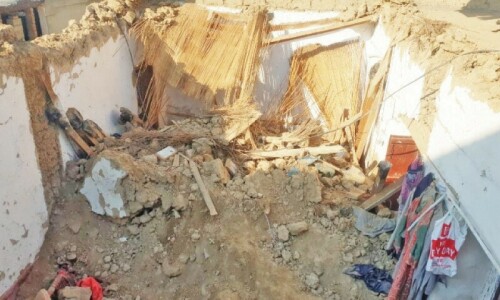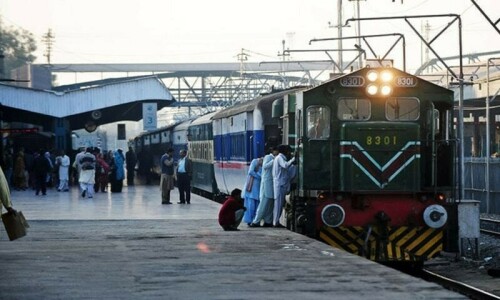ISLAMABAD: The July 31, 2009 landmark judgement, under which a large number of superior court judges had lost their jobs as a penalty for taking the oath in the wake of the Nov 3, 2007 emergency, still haunts the Supreme Court.
On Friday, former Lahore High Court judge Shabbar Raza Rizvi asked a seven-judge Supreme Court bench, headed by Chief Justice Mian Saqib Nisar, why the then 14-judge bench, headed by former chief justice Iftikhar Mohammad Chaudhry, had issued notices to former president Pervez Musharraf, rather than the judges. Was the crime of taking the oath under the Provisional Constitutional Order greater and graver than the one committed by Musharraf, who had abrogated the Constitution, Mr Rizvi asked, adding that it was a cardinal principle of justice not to condemn anyone unheard.
The larger bench had taken up a set of petitions moved by several retired judges seeking review of the April 11, 2013 short order issued by a five-member Supreme Court bench which had held that the superior court judges, who received pension despite having rendered less than five years of service, would not receive pension. The short order had affected 69 retired high court judges who were also directed to return whatever benefits they had received as pensions — the aggregate amount of which comes to Rs1.64 billion. The judges, however, withdrew their petitions.
Similarly, through separate petitions, several former judges had requested the Supreme Court to revisit its July 31, 2009 judgement, under which they had been issued contempt of court notices for violating its Nov 3, 2007 order restraining judges from taking the oath under the PCO. A majority of judges had subsequently resigned as a result of which the contempt notices against them were withdrawn.
The appointment of those who had decided to contest the contempt notices was declared illegal in a May 18, 2011 notification by the law ministry. At least six judges are still fighting the cases under this in the Supreme Court: Shabbar Raza Rizvi, Hasnaat Ahmed Khan, Hamid Ali Khan, Sajjad Hussain Shah, Yasmeen Abbasey and Jehanzeb Raheem. They had filed review petitions against the July 31, 2009 verdict, but the registrar’s office had returned them on the grounds that they were not party to the 2009 case.
On Friday, the Supreme Court dismissed the petitions moved by Rizvi, Hasnaat and Shah under Article 184(3) of the Constitution. Justice Asif Saeed Khosa, a member of the bench, said there would be no end to the litigations if the Supreme Court kept on accepting petitions under Article 184(3) after the right of filing review petitions against a court judgement had been exhausted.
During the hearing, the chief justice hinted that the court might consider withdrawing the contempt notices because it was an unpleasant experience for the court. He recalled that he had heard that the pension issues faced by the judges, who had lost their posts in the wake of the July 31, 2009 judgment, might be settled soon.
Advocate Sibtain Fazli, representing Shabbar Rizvi, stated that his client would be happy if the contempt notices were withdrawn. He argued that the judges who had taken oath under the 2007 PCO continued to be judges of the superior courts once the PCO was declared illegal under the 2009 judgement. Moreover, the 18th Amendment, under which parliament chose not to validate the 2007 emergency, had no affect on the judges since it was held that the office of then chief justice Iftikhar Chaudhry had never become vacant and the strength of the apex court was complete, he argued.
Mr Fazli then cited a number of judgements stressing that judges could not be removed by anyone other than the Supreme Judicial Council (SJC), by invoking Article 209.
Advocate Sheikh Zamir, representing Sajjad Hussain, argued that the 2009 judgement was bold and objective when it struck down the emergency but also “subjective” as far as the judges were concerned because it expressed anger against the judges who had taken the oath in disregard of the 2007 restraining order.
Why should these judges face a dilemma in their lives, the counsel asked while citing a book, Memoirs and Reflections, in which former chief justice Naseem Hassan Shah had presented his justification for taking the oath under the then military rule in order to benefit thousands of litigants and victims of criminal cases, even though he believed the PCO to be an immoral instrument. “Now that is positive thinking...which should also be attributed to the judges who took oath in the wake of 2007 emergency,” the counsel argued.
Published in Dawn, January 6th, 2018














































Dear visitor, the comments section is undergoing an overhaul and will return soon.